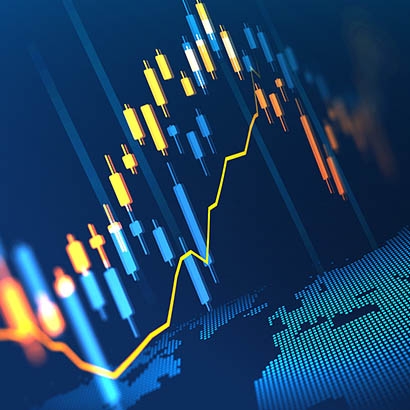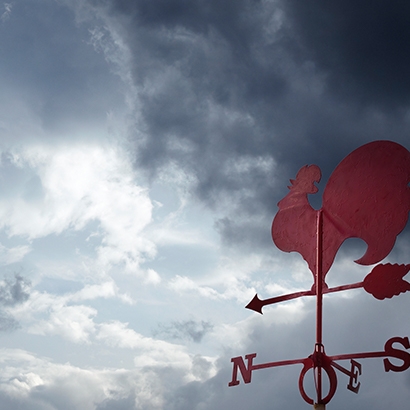Entrepreneurs from our Multicultural Innovation Lab discuss the sometimes baffling process of funding their businesses.
Starting a company can be lonely and stressful, and access to capital tends to be among the biggest hurdles. That’s why Morgan Stanley started an in-house accelerator program, the Morgan Stanley Inclusive Ventures Lab, which invites technology entrepreneurs to come work in our New York headquarters with guidance from senior mentors. Now in its second year, the program awards $200,000 to each startup it selects—all of which are led by multicultural or women entrepreneurs—and takes a 3% to 5% equity stake in each company.
We sat down with three of this year’s Lab participants to discuss their experiences with raising capital and other matters.
Louise Broni-Mensah, Founder and CEO of Shoobs. Shoobs—a slang word for party—is an online discovery and ticketing platform for access to clubs, concerts and other urban events. The website, which so far serves the London area, is aimed at millennials who want to explore their nightlife options. (Pictured above, left.)
Param Jaggi, Co-Founder and CEO of Hatch Apps.
A Washington, D.C.-based software company, Hatch Apps offers an automated system that businesses can use to build and launch apps on iOS, Android and the web without having to write code. (Pictured above, right.)
Rhoden Monrose, Founder and CEO of CariClub.
CariClub, based in New York, connects young professionals with volunteer opportunities at nonprofits. Employers who sign up with CariClub can offer their employees the ability to serve on the associate board of a philanthropic institution, where they can learn leadership and fundraising skills. (Pictured above, center.)
Moderator: So, let’s get this started. How has your experience in the Multicultural Innovation Lab been so far?
Broni-Mensah: What I’ve really enjoyed about this program is that it’s really hands-on. Having someone with a reputation like Carla Harris coming into your one-on-ones and giving her input and being there for lunches and dinners—it’s fantastic. She really cares and is really involved. We’ve also had time with Tom Nides, Vice Chairman of Morgan Stanley. It’s phenomenal to have that kind of access and face time.
Jaggi: I don’t feel like we’re a separate company from Morgan Stanley—it feels as if Morgan Stanley is there to help us, as if we were just any other team within the building.
Being able to say you’re working out of the Morgan Stanley office adds a layer of credibility. It’s helped us during conversations with potential investors. A lot of investors, especially the VCs, know the due diligence that Morgan Stanley has done before putting their name behind something.
Monrose: I’ll second that and say it’s definitely a value-add to say that the Morgan Stanley investment is there. The exhaustive due diligence is something that gives investors the confidence that we have our house in order.
For me, too, the experience has exceeded expectations. I was ambivalent, because I’ve heard mixed things from people who’ve been in other accelerators. I wasn’t really sure what to make of it, but I was excited about the possibility of being able to get access to the brain trust and network of Morgan Stanley. That has definitely been playing out as hoped.
Moderator: What topics or common issues have come up within the group?
Broni-Mensah: My peers in the cohort have had similar experiences that I’ve had in terms of access to capital, which, in short, has been challenging. When I speak to my peers, they have fantastic businesses with great traction, and it’s baffling sometimes to know they’ve struggled to raise money.
Since I’ve been here, investors who went cold and didn’t get back to me have now gotten back to me, which has been great. As a result of that, we’ve had more follow-ups, and talks have progressed a lot more quickly.
Monrose: Being part of this group makes the whole startup journey, which is in so many ways a lonely journey, less so. It’s been really cool to see fellow travelers who’ve experienced not only the startup grind—which is going to be true for anyone, regardless of your background—but also the challenges that we face because of our backgrounds.
Jaggi: Before I got here, I thought we were the only ones who had such an unorthodox story of how we got to where we are today. But what we’ve learned from talking to a lot of the other founders in the program is that a lot of people from other backgrounds, and a lot of female entrepreneurs, have had—out of necessity—an unconventional story.
One of the underlying themes that I’ve seen with other startups in the program has been a sense of grit—that somehow, some way, we’ll figure it out. And that’s something Amelia [Friedman], my co-founder, and I definitely have, and it’s been nice to see that in other founders, for whom maybe the access to capital wasn’t the same as it should have been.
Broni-Mensah: I agree. It’s fantastic being part of a cohort and having opportunities to talk to entrepreneurs—whether it’s sharing advice, or talking through your company’s growing pains.
I’m a solo founder, so that in itself can be quite lonely. I have a team, but there are things that you can discuss with your team and there are things that you can’t. It’s great being able to have that network with other founders at a similar stage.
Moderator: The role of community is so important to Carla Harris, who has been such a driving force behind the Multicultural Innovation Lab. Can you talk a bit about your own experience as part of the group, versus being out there on your own as an entrepreneur?
Jaggi: One of the first weeks, it was my 24th birthday. Carla brought out a cake, and the whole group sang to me. At that point, I didn’t even know half the people’s names, and it was just a nice thing, right?
As entrepreneurs, you know that you’re always on the road, constantly living out of your backpack, and you don’t know the next time you’re going to see your friends or family, so it was a nice way to kick off the program.
Monrose: Yeah, I definitely have a cool Carla story: When she met with us for the first time, I asked her if she knew someone we were talking to as a potential investor, and it just so happened she was going to a nonprofit gala and this person was going to be at her table. Carla then invited me to that gala, which was above and beyond.
I got to know Carla there and found we had an interest in common—our background, if you will. There’s a Catholic church in Harlem which is the first place I ever got a job, and that’s the church she’s very involved in. It was very humanizing.
Broni-Mensah: What to add to that? There’s a community of founders here, and it means a lot to be able to share stories, thoughts and experiences with everyone.
For me, for instance, as a black woman, the moment comes when investors think about pattern matching, and say, “We haven’t seen the black female equivalent of Mark Zuckerberg, yet so we don’t think you could be that.” There is a lot of unconscious bias.
For myself and other women of color in this group, we feel a sense of responsibility to be that role model for the future. So that one day when the VCs see another young black girl, they’ll look to people who have come out of this Lab as the shining examples of people of color who are successful CEOs.
Moderator: Can each of you talk about your fundraising experience? How did you go from “I’m going to start this company” to “how do I fund this?” to “I’m going to join the Lab”?
Monrose: It was absolutely a journey. I had this crazy notion in the beginning that it was going to be a sprint, but I was humbled very quickly. And I definitely invested every single dollar that I had into getting the company to a point where we had a product. I almost lost my apartment.
In the very early days, everyone told me that we should be a nonprofit—that nobody was going to pay to connect their employees with nonprofit boards, or nobody was going to use it. That was the overarching feedback from a majority of investors.
Every time I heard that from a potential investor, I thought, well, I’m going to have to prove you wrong and come back to you. And it became that sort of game for some time.
I needed to prove that people would actually use this, so we did a pilot with my former employer—they had mercy on me—and that was my little case study. We were able to say, we’ve got something here that people are willing to use.
And the rest is history: we have 15 clients, we’re in three cities, and we now have over 1,000 nonprofits on our platform.
Jaggi: That’s awesome, man. I’m getting chills.
We had a pretty unorthodox fundraising story. We originally tried to raise money, but that didn’t work, so over a weekend launched this thing called the 2016 Election Game. It’s like Cards Against Humanity, but about the 2016 election cycle. We put up a website accepting orders, and within a few weeks had done $50,000 in sales. Within two months, we had $100,000 in sales. And then we actually created the game and delivered the product.
That $100,000 was the initial capital we needed to support ourselves and get going. Since then we’ve raised $2.2 million, and what I tell people is that fundraising is the toughest thing I’ve ever done personally. It just required brute force.
Broni-Mensah: I didn’t really think about raising capital —I didn’t know that was a thing that people did. I just used my personal savings to get started.
From day one, we made sales, so we knew we had a product that was going to make money. But the sales weren’t growing as fast as I’d anticipated in terms of giving me an actual salary. That was when I realized, oh, people raise money so they can survive and hire people and do innovative things.
Monrose: I try not to let the fundraising part of things psych me out or affect my drive. But one of the overarching concerns I have is that the bar is always getting pushed further and further, and it doesn’t seem that way for everyone. That bar being pushed doesn’t seem like it’s universally applied. There seems to be a disparity when it comes to women and multicultural founders.
Moderator: What are you excited about pursuing during the rest of your time here at Morgan Stanley? Are you preparing for the moment when this is over and you’re back out there?
Broni-Mensah: I’m looking forward to getting to know my mentor. I have Jessica Zoob, who is Chief Operating Officer of Morgan Stanley Fund Services, and our first meeting was absolutely fantastic. She gave me so many great ideas.
Jaggi: I’m looking forward to spending more time in the actual physical space at Morgan Stanley headquarters. And I’m excited to get to know our mentor, who is Michael Poser, the CIO of Enterprise Technology and Risk at Morgan Stanley.
Monrose: I am also looking forward to getting to know my mentor more. She is Peg Sullivan, the Head of Global Talent Management at Morgan Stanley. She has a depth of insight into employee engagement and talent development, and that’s a perspective I’ve never had in my corner—I’ve always had to just guess it.
And second—given that my business connects big companies with nonprofits that are looking for board members—I’m hoping that Morgan Stanley isn’t going to get rid of me anytime soon. Hopefully they’ll be a client!



